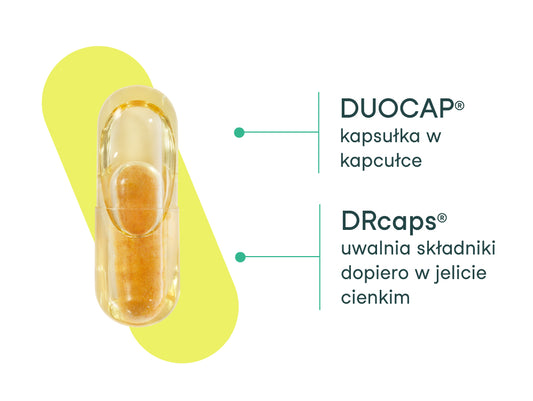
There is a lot of violence in delivery rooms. Much too much, according to the reports of the Rodzic po Ludzku Foundation. Over 50% of women giving birth in Poland experienced abuses of their rights. Joanna Pietrusiewicz, president of the Foundation, tells us how to defend against this in an interview for nikaMag.
Violence or abuse by medical staff is an everyday occurrence in Polish maternity wards. It is experienced by 54.3% of women giving birth in our country . You can read more about the forms it takes in a separate article. In the face of violation of the rights of a woman giving birth, we can and must fight for dignity, says Joanna Pietrusiewicz , president of the Roździ po Ludzku Foundation.
What can a pregnant woman or those around her do to protect themselves from childbirth violence?
Joanna Pietrusiewicz: The most important thing is to do everything not to have to defend and fight. A lot of work can be done already during pregnancy. It is worth choosing a hospital that meets our expectations. One that respects the standards of perinatal care, because it is important to give birth the way you want.
Sounds good, but how to do it?
We recommend our website poznarodzic.info , a place where we collect mothers' voices - real stories about what births, care, and communication with staff are like there. Thanks to this information, the picture is complete because it can be compared with what the hospital says and writes about itself. We check how it really is: whether this hospital is really friendly, whether it meets my criteria, whether my needs - which can be very different - will be met. It is also worth going and talking - this will probably be possible after the pandemic ends. Women's voices are a guarantee that it is actually possible to give birth in vertical positions, and that patients' rights to information, privacy and uninterrupted skin-to-skin contact are respected. Because declarations often differ significantly from practice, and women's voices are simply a type of social monitoring that verifies the hospital's voice.
What is most important in preparation?
Knowledge. It does not always protect us against mistreatment. However, it allows me to gain awareness of what is important to me, what I do not want to give up and, above all, make an informed choice, and then talk to the staff in a way that makes it clear that I know my rights. When doctors and nurses see that the patient knows them and uses them, they are less willing to withhold or provide incomplete information. The presence of a loved one also helps - it doesn't have to be your husband or partner. It can be a mother, a friend, a sister, a doula - because then we always feel safer and more confident. It's such a protective factor. And if it is, for example, a doula, i.e. an educated person who assists a woman during childbirth, this is also support for the staff. Because if at some point another woman gives birth in the hospital, the midwife may not be able to sit with one patient for an hour and a half and calmly pour warm water on her belly. It's also about simple activities during childbirth that are very important. Another important aspect is working with the body and preparing the body for childbirth. I encourage you to look for classes for pregnant women in your area. It can be yoga or any other meeting where you can focus on your body, learn relaxation and stretch.

Is it worth going to antenatal school?
Bright! However, you need to look around for a good, proven antenatal school. It is also worth preparing the so-called a birth plan, which is part of the medical documentation and described in the standard of perinatal care. It is in this document that a woman can describe her preferences. And although the name itself suggests something that we must follow the plan, it is simply a list of individual preferences that the hospital is obliged to familiarize itself with. Completing such a document also gives you a sense of control and security.
We keep coming back to the rights of the woman giving birth. What rights are these?
These rights are defined in two important documents: the Act on Patient Rights and the Patient Ombudsman and the Regulation on standards of perinatal care. These documents equalize the position of women in relation to the staff. What do they mean? Each treatment and examination must be performed with our consent. We must consent to each procedure, including the insertion of a cannula, and the basis for our consent is the information provided to us by the medical staff. The information must be provided in an understandable manner and be complete. We have the right to ask until everything becomes clear. And once we know what is happening, we have the right to say - no, thank you, I do not consent. Or: yes, I consent. We have the right to respect for dignity, intimacy and privacy. And this applies to every patient, and it results from the Act on Patient Rights. Standards of perinatal care apply strictly to pregnancy, childbirth and the postpartum period. First of all, they impose a lot of responsibilities on medical staff. The standard shows that the patient does not have to lie down during childbirth, she can move, walk, give birth in an active position, in the position in which she feels best - push as the body tells her, push as the woman feels, drink and eat during childbirth. And also the right to pain relievers and undisturbed skin-to-skin contact with the child for 2 hours. Remember that the baby should be placed immediately on the mother's chest or belly. Weighing and measuring can wait, of course, if mother and baby are healthy. This time, these 2 hours, is protected by law. Hospitals also have a responsibility, among other things, to support us in breastfeeding.
Is Polish midwifery changing?
Yes. We are in the stage of change, moving away from the concrete, oppressive obstetrics that our mothers and grandmothers remember. The woman had little to say back then and was more of a number than a person. Women were treated as objects and impersonally: "Let her sit down." The echo of this old midwifery remains somewhere in our society, in us. This fear of a white coat and the belief that I prefer to be an invisible, gray mouse. We must remember that we are in the hospital to get help. We have the right to ask questions and exercise our rights.
What if someone violates these rights?
We must assertively say that we do not consent to this and ask for the lack of consent to be entered into the medical records. It is also worth writing a complaint to the hospital if someone behaves badly towards you - not only for yourself, but also for other women. After all, the point is to change hospitals, such critical information is very important. But it's also worth writing about positive experiences. For staff, knowing that someone had a good experience and is grateful for the care is important.
I encourage you to complete our survey and contribute to the ranking of hospitals in Poland.




What makes our capsule stand out?
The nikalab capsule impresses not only with its appearance, but also with its operation. We used two innovative...









